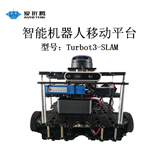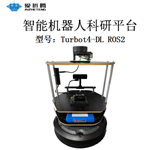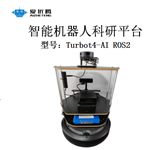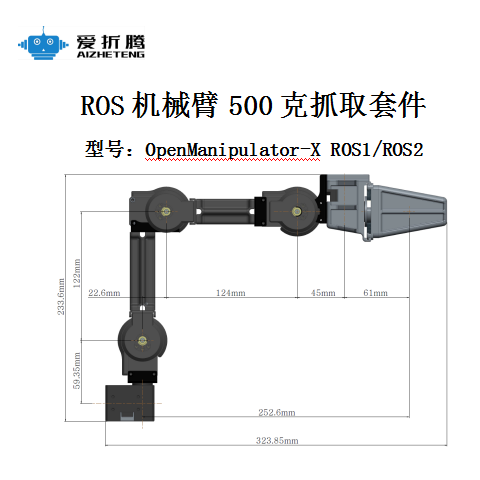Pixhawk源码笔记-01.APM代码基本结构
Pixhawk源码笔记-01.APM代码基本结构
说明:
- 本教程主要介绍APM代码基本结构和sketch例程代码的学习
基础知识
第一部分:介绍
详细参考:http://dev.ardupilot.com/wiki/learning-ardupilot-introduction/
ArduPilot代码分为5个主要部分,基本结构分类如下:
vehicle directoriesAP_HALlibrariestools directoriesexternal support code
- vehicle directories模型类型
当前共有4种模型:
ArduPlane,ArduCopter,APMrover2和AntennaTracker这些都是.pde文件,就是为了兼容arduino平台,以后可能会放弃
- AP_HAL硬件抽象层
硬件抽象层,使得在不同硬件平台上的移植变得简单
其中AP_HAL目录定义了一个通用的接口
其他的目录AP_HAL_XXX针对不同硬件平台进行详细的定义
例如AP_HAL_AVR目录对于AVR平台,AP_HAL_PX4对应PX4平台,AP_HAL_Linux对应Linux平台
- tools directories工具目录
主要提供支持
For examples, tools/autotest provides the autotest infrastructure behind the autotest.diydrones.com site and tools/Replay provides our log replay utility.
- external support code外部支持代码
对于其他平台,需要外部支持代码。例如Pixhawk、PX4的支持代码如下:
PX4NuttX – 板载实时系统:the core NuttX RTOS used on PX4 boardsPX4Firmware – PX4固件:the base PX4 middleware and drivers used on PX4 boardsuavcan – 飞行器CAN通信协议:the uavcan CANBUS implementation used in ArduPilotmavlink – Mavlink通信协议:the mavlink protocol and code generator
- 系统编译
针对不同的硬件板,编译可以采用“make TARGET”的形式
make apm1 – the APM1 boardmake apm2 – the APM2 boardmake px4-v1 – the PX4v1make px4-v2 – the Pixhawk
如果要移植到新的硬件,可以在mk/targets.mk文件中添加
比如:
make apm2-octa -j8或者:
make px4-v2 -j8采用8通道并行编译方式,针对APM、Pixhawk硬件板(AVR、STM32),编译八旋翼代码。
第二部分: 学习sketch例程代码
详细参考:http://dev.ardupilot.com/wiki/learning-ardupilot-the-example-sketches/
sketch,是指使用 .pde 文件编写的主程序
开始之前,你可以试着阅读、编译并运行下面的sketches
libraries/AP_GPS/examples/GPS_AUTO_testlibraries/AP_InertialSensor/examples/INS_genericlibraries/AP_Compass/examples/AP_Compass_testlibraries/AP_Baro/examples/BARO_genericlibraries/AP_AHRS/examples/AHRS_Test
例如,下面的编译方法,将在Pixhawk上安装AP_GPS例程sketch
cd libraries/AP_GPS/examples/GPS_AUTO_test make px4-clean make px4-v2 make px4-v2-upload正确理解sketch例程代码,我们以GPS_AUTO_test.pde代码为例(目录ardupilot\libraries\AP_GPS\examples\GPS_AUTO_test),主要几个特点:
1、 pde文件包含很多 includes
2、 定义了 hal 引用声明
3、 代码非常粗糙
4、 setup() 和 loop()函数
- include文件
- pde文件转变为C++文件后,提供必要的库引用支持。
- hal引用声明
- 定义如下:
const AP_HAL::HAL& hal = AP_HAL_BOARD_DRIVER;// pixhawk等价于AP_HAL_PX4
该定义,方便访问硬件接口,比如console终端、定时器、I2C、SPI接口等
实际的定义是在HAL_PX4_Class.cpp中定义,如下:
const HAL_PX4 AP_HAL_PX4;
hal是针对 AP_HAL_PX4 的引用
经常使用的方法如下:
- 终端字符输出。hal.console->printf() and hal.console->printf_P() to print strings (use the _P to use less memory on AVR)
- 获取当前运行时间。hal.scheduler->millis() and hal.scheduler->micros() to get the time since boot
- 延时。hal.scheduler->delay() and hal.scheduler->delay_microseconds() to sleep for a short time
- IO输入输出。hal.gpio->pinMode(), hal.gpio->read() and hal.gpio->write() for accessing GPIO pins
- I2C操作,hal.i2c
- SPI操作,hal.spi
- setup()和loop()
每个sketch都有一个setup()和loop()函数
板子启动时,setup()被调用
这些调用都来自HAL代码中的main()函数调用(HAL_PX4_Class.cpp文件main_loop())
setup()函数只调用一次,用于初始化所有libraries
Loop()循环被调用,执行主任务
- AP_HAL_MAIN()宏指令
每一个sketch(.pde文件)最底部,都有一个“AP_HAL_MAIN();”指令,它是一个HAL宏,用于定义一个C++ main函数,整个程序的入口
它真正的定义在AP_HAL_PX4_Main.h中
#define AP_HAL_MAIN() \
extern "C" __EXPORT int SKETCH_MAIN(int argc, char * const argv[]); \
int SKETCH_MAIN(int argc, char * const argv[]) { \
hal.init(argc, argv); \
return OK; \
}
作为程序的起点,在AP_HAL_MAIN()里,就正式调用了hal.init()初始化代码
程序的执行过程就是:程序起点AP_HAL_MAIN() -> hal.init() -> hal.main_loop() -> sketch中的setup()和loop()
获取最新文章: 扫一扫右上角的二维码加入“创客智造”公众号



















